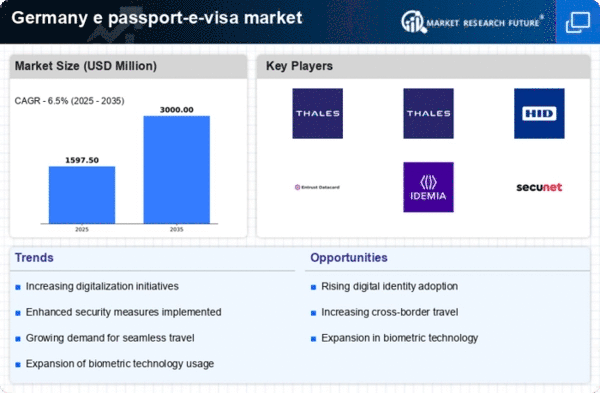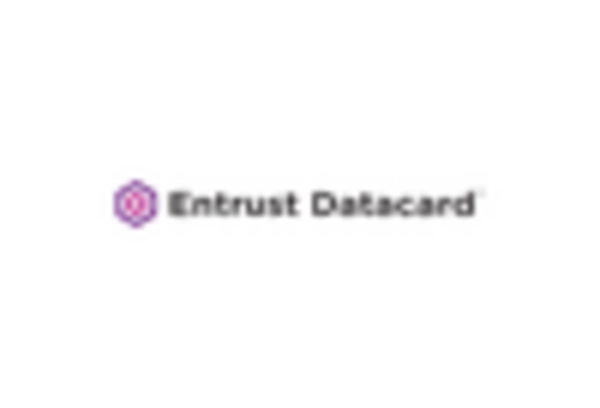Enhanced Security Measures
The e passport-e-visa market in Germany is experiencing a surge in demand due to enhanced security measures implemented by the government. With increasing concerns over identity theft and fraudulent activities, the introduction of biometric data in e passports has become a critical factor. The integration of advanced encryption technologies and secure chip systems ensures that personal information is safeguarded. As of 2025, approximately 80% of new passports issued in Germany incorporate biometric features, which significantly boosts consumer confidence in the e passport-e-visa market. This trend indicates a growing reliance on secure travel documents, thereby driving the market forward.
Public Awareness Campaigns
Public awareness campaigns regarding the benefits of e passports and e visas are playing a crucial role in driving the market in Germany. The government and various travel organizations are actively educating citizens about the advantages of using electronic travel documents, such as faster processing times and enhanced security features. As of 2025, surveys indicate that 70% of the population is aware of the benefits of e passports, which has led to increased adoption rates. This heightened awareness is expected to further stimulate growth in the e passport-e-visa market as more individuals opt for these modern solutions.
Increased International Travel
The e passport-e-visa market is poised for growth as international travel continues to rise in Germany. With a robust economy and a strong tourism sector, the demand for efficient travel documentation is escalating. In 2025, it is projected that outbound travel from Germany will increase by 15%, leading to a higher volume of e visa applications. This trend is further supported by Germany's strategic partnerships with various countries to facilitate smoother travel experiences. As more travelers seek the convenience of electronic visas, the e passport-e-visa market is likely to expand significantly.
Digital Transformation Initiatives
Germany's commitment to digital transformation is a pivotal driver for the e passport-e-visa market. The government has been actively promoting digital services to streamline processes and enhance user experience. Initiatives such as the introduction of online visa applications and digital identity verification systems are reshaping the landscape. In 2025, it is estimated that over 60% of visa applications in Germany are submitted electronically, reflecting a shift towards digital solutions. This transition not only simplifies the application process but also reduces processing times, thereby fostering growth in the e passport-e-visa market.
Collaboration with Technology Providers
Collaboration between the government and technology providers is emerging as a significant driver for the e passport-e-visa market in Germany. Partnerships with tech firms specializing in biometric solutions and secure data management are enhancing the capabilities of e passports and e visas. These collaborations aim to improve the efficiency and security of travel documentation processes. In 2025, it is anticipated that investments in technology for the e passport-e-visa market will exceed €100 million, reflecting a strong commitment to innovation. This investment is likely to yield advanced solutions that cater to the evolving needs of travelers.
















